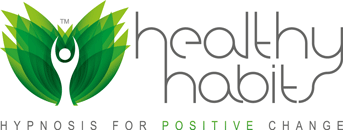Is Sweetness Your Weakness?
- Healthy Habits Hypnosis
- Oct 27, 2017
- 3 min read

Sugar is something we consume every day. It's in our coffee, in our tomato sauce and in that chocolate bar we treat ourselves to. It can be easy to overload on sugar, sometimes without being aware of the negative effects excessive sugar is having on our bodies and minds. Many of us are addicted to sugar and we actually get cravings and withdrawals from it- similar to drug addiction!
Sugar’s effect on the brain;
Sugar fuels every cell in the brain and influences brain chemicals, too. Overloading on sugary foods may alter the brain receptors that regulate how much we eat. In laboratory studies, rats that binged on sugar had brain changes that mimicked those of drug withdrawal. In humans, just seeing pictures of milkshakes triggered brain activity similar to that seen in drug addicts.
Researchers think a pattern of withholding and bingeing (not the sugar itself), may lead to addictive-like behaviour and even brain changes. Sugar influences the same "feel-good" brain chemicals - including serotonin and dopamine - as illicit drugs. When these chemicals are released into the bloodstream they last for a short time and when they are depleted this causes a mini-withdrawal, which can cause you to crave more sugar. The more sugar you consume the more your body adapts, so similarly to drug addiction, you need more and more sugar to get the same 'high'.
Other negative effects of excessive sugar on the body;
Apart from the confusion that the body and mind goes through when you’re addicted to sugar, there are other health risks from over indulging in sweet treats. Excessive sugar in the diet can cause low energy, mood swings, metabolic imbalance, obesity or weight gain, heart disease, diabetes (type 2), high blood pressure, tooth decay and has been linked to Alzheimer's disease and dementia. Sugar is highly acidic and because of this can cause inflammation in the body. And… if the above list isn’t scary enough, sugar is known to ‘feed’ cancer cells, speeding their growth in the body. Read more here; http://bit.ly/2hdOUHg
The yo-yo effect of sugar;
A 'sugar high' happens when, for example you eat cake and the sugar in that treat - called a simple carbohydrate - is quickly converted to glucose in your bloodstream. Your blood sugar levels rise and spike when simple carbs are eaten alone - for example when you grab a mid-afternoon chocolate bar or biscuit. All simple carbs are absorbed quickly, especially the processed, concentrated sugars found in syrup, fizzy drinks, sweets and table sugar. Simple carbs are also found in fruit, veg and dairy products - but fibre and protein in these foods cause slower absorption and provide wholesome nutrients, so the sugar spike doesn’t happen.
The 'sugar low' happens because after a sugary snack, your pancreas releases the hormone insulin to move the glucose out of the bloodstream -- and into your cells for energy. As a result, experts say, your blood sugar level may drop pretty dramatically. That afternoon chocolate bar has set you up for more bad eating. When you have a very high spike followed by a very low drop, you tend to get hungry again. Low blood sugar leaves you feeling shaky, dizzy and searching for more sweets to regain that sugar "high."
So how much is too much?
For adults the total sugar daily consumption shouldn’t make up more than 5% of your daily calorie intake- that’s a maximum of 30 grams (roughly 7 sugar cubes). And for children it’s 19 grams (5 sugar cubes) for 4-6 year olds and no more than 24 grams ( 6 sugar cubes) for 7-10 year olds.
How to limit your sugar intake;
Take the following steps to kick the sugar habit. The less you eat, the less you will want as your taste buds get re-trained;
Make sure you eat a balanced diet with enough fruits and vegetables
Drink extra water
Check food labels and choose those that don’t contain sugar
Eat high protein foods- they digest more slowly and keep you feeling fuller for longer. Choose lean meats, fish, eggs, nuts and beans
Include fibre- whole grains and fruit and veg again. This will keep you full for longer and help fight any sugar cravings
Avoid obvious sugary foods and drinks- fizzy drinks, chocolate, cake, sweets and also be aware of the added sugar in convenience foods such as baked beans, tomato sauce and pre-packaged meals.
Also, starch converts to simple sugar- so cut down on foods containing white rice and flour such as pastries, bagels, white bread, crackers and also chips and crisps.
If you feel that you need a bit of help with kicking the sugar our Sugar Reduction Hypnosis Programme can help. Read more on our treatments page.







































































Comments